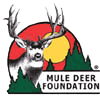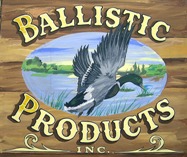Water:
- You'll need 1 acre-foot of water just for household use, any livestock or crops beyond a small garden will demand a lot more.
- Check with neighbors and the water district to find out how deep of a well you'll need to drill.
- Find out what kind of material you'll need to drill through. Rock is extremely expensive.
- What diameter of well will you need to get the amount of water needed for your crops/livestock?
- How much will it cost to drill the well?
- Depending on well depth or the amount of water needed for crops/livestock, you may need very big (expensive and power hungry) pumps.
- Before drilling a well, you need to have rights to the water. Are water rights even available and at what cost? How much does a well permit cost?
- Will the water be drinkable or will it stain your clothes and sink?
- If you have an existing well, how old is it and will it need to be relined or redrilled? How old are the pump and storage tank?
Electricity and phone:
- Is commercial electricity available to the property? If not, how much will it cost to run the wire?
- If commercial electricity is unavailable or is too expensive, is the property a good candidate for solar or wind power?
- How much will a reasonable power source cost? Just for household use, you'll want at least 5-8 kw of solar and/or wind generation, a backup gas/diesel/propane generator of at least 5 kw, sufficient deep-cycle batteries to get you through cloudy/calm-wind periods, and an inverter system of at least 5-8 kw.
- For property we almost bought near Cedar City, Utah we calculated that the cost of just getting water and solar/wind electricity would have been about $50,000.
- Can you get phone service on your property? If not, how many bars on your cell phone?
- If you can't get a landline phone, you'll need to subscribe to the more expensive, and slower, satellite Internet service.
Septic
system and trash:
- Does a perk test show the soil is suitable for a
septic
system?
- What will the system cost?
- How often will it need to be serviced?
- How far to the nearest place to dispose of trash?
- In the past, ranchers typically had a pit where they dumped trash, including used oil and car batteries. Does your property have such a toxic waste dump? What will it cost to clean it up? Has it poisoned your water?
Road:
- Does the property have road access?
- Who owns the road? If it is not publicly owned, can you get a legally binding permanent right-of-way?
- Does the road provide year-'round access?
- Is the road maintained or is it an abandoned logging road or is a tank trap?
- Who plows the snow? How often?
- Will the road handle a fire truck, cement truck, lumber truck, propane truck,
septic
truck?
- Can an ambulance or the police/sheriff get to your property quickly?
- Will every passing car or truck blow dust into your living room? When it's not dusty, is it a mud bog?
- How far is it to the nearest town with a hospital, schools and reasonable shopping -- at least a decent hardware store and a grocery store?
- How much will it cost to establish and maintain any part of the road that you own?
- Is your "road" unusable because it's in an area designated as "roadless" by the federal government (thanks to Al Gore, Bill Clinton and other environmental extremists)?
Fuel for heating:
- Is natural gas available at the property?
- If not, can you get propane service?
- If not, does the property have lots of wood? Do you really want to rely on wood for heat? Can you legally cut the trees?
Fire protection:
- If you have a house or barn fire, where will the fire trucks come from? What is the response time?
- How far to the nearest fire hydrant to other reliable source of water for putting out a house fire?
- Check with your insurance company to see how much homeowners insurance will cost for remote property.
Land characteristics:
- Is the property subject to seasonal flooding?
- What is the slope of the land? Does it slope enough for drainage?
- Does it slope so much that it can't be farmed? Does it slope to the north so that it is always cold and dark?
- What is the soil type? Is it farmable, a boulder field, or solid basalt?
- Are there special considerations (such as pilings or dynamite) in digging a hole for the foundation of your home?
- What kind of plants are currently growing on the land? Some plants indicate marshy land with poor drainage. Others indicate soil that is very alkaline or very acid. Has the natural vegetation been overgrazed? Has it been replaced by weeds?
- Who owns the mineral rights on your land and can you stop that person from digging a coal mine on your property?
- Is the property restricted from development or agricultural use due to the alleged possible presence of an endangered species which may not even exist?
Zoning:
Neighbors:
- Do you, or will you have an undesirable neighbor such as a nerve-gas storage facility or garbage dump nearby?
- What do neighbors (folks living within a five-or-so-mile radius) say about the property and about the area?
- Do neighbors report any problems with the area or of any drawbacks with the property? If they seem reluctant to talk to you, this might be a red flag.
- Has any part of the property been a dumping ground? Once people in the area have become accustomed to dumping old cars and refrigerators on your property, it's very hard to stop the practice.
Survey:
- Taking someone's word for where boundary lines are can be a costly mistake.
- Has the land been surveyed?
- Are the boundaries correctly marked?
- Does a neighbor think the boundaries are different from what your survey says? It might be expensive to fight over the difference.
- Do fences follow the boundary? Will neighbors cooperate (or at least allow) in relocating fences to the proper place?
- Are there any encroachments (somebody else's barn partly on your land)?
- Are there any easements that give somebody else use of your land such as a power company, roadway, etc.?
Weather and Local Climate:
- How many days of sunshine can you expect?
- How windy is it? How dusty is it when the wind blows? Will every tumbleweed in the county settle in your front yard every winter?
- How deep is the typical snow accumulation?
- What crops can you grow based on the local climate?
Existing structures:
- How old? If older than 1974, you'll have lead paint.
- What is the condition of the wiring, plumbing, foundation, structure?
- What kind of foundation does it have?
- Has it been checked for insect damage?
- If buildings are unusable, how much will it cost to demolish and remove them?
- Will fences need to be installed, repaired or replaced? Keeping up a fence to keep your animals in or the neighbors animals out can be a monthly chore.
- In most states you have a fence not to keep your animals in, but to keep someone else's animals out. If you do not have a fence up, or a properly constructed fence per state guidelines, and the neighbor's bull wanders into your property and takes out everything in his path; you have no recourse.
- How much trouble will you have with predators getting into your livestock? What about deer getting into your garden? Skunks tangling with your dog? Ever try pulling porcupine quills from the nose of a dog?
Local economy:
- Is the area depressed or is it growing?
- Is there a good job market?
- Are the locals optimistic about the future?
- Is the local economy healthy enough to provide taxes to maintain infrastructure such as roads, schools, etc?
How will you pay for it?
- Most people who move from the city to a farm still have to work in the city to support the farm. Those who don't usually already have enough money that they'll never have to work again (millions). It's a very expensive hobby.
What is the real cost?
- How much is the land worth according to a licensed appraiser?
- How much of land is honestly usable?
- If you buy 100 acres at $1,000 per acre and only 5 acres are usable, your real cost is $20,000 per acre. That's no bargain unless it's lake front property on Lake Tahoe.
Financing?
- Can you get traditional financing?
- If it the seller is willing to finance the property, when do you get the title? If it remains his property until it's paid off, do you want to invest money in improvements?
Staying realistic:
- Fantasies about living a peaceful, independent, existence in the country, far from the maddening crowds, can soon turn to feelings of isolation and financial hardship.
- Many people buy rural property on a weekend binge or because it's the trendy thing to do. This is a decision that demands careful deliberation and thorough exploration.
- Falling in love with the aesthetics of a country property is not wise.
- Never fall in love with something that can't love you back.
Read some good books on real estate.
Return to top of page
|























































































